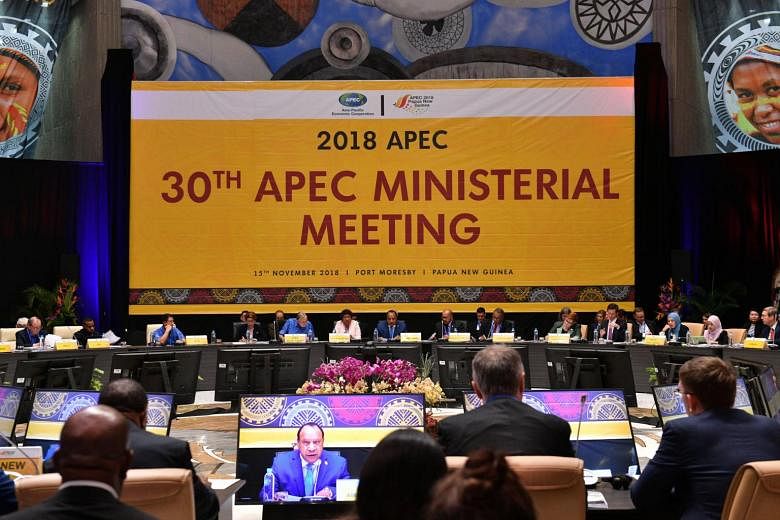SYDNEY - In the Pacific nation of Papua New Guinea, a furore broke out last month when 40 new government-purchased Maserati sedans were seen being flown into the capital.
The luxury cars, later joined by three Bentleys, were imported to shuttle dignitaries for this week's Asia-Pacific Economic Co-operation (Apec) summit, which is being held for the first time in the poorest member of the 21-member grouping.
On Saturday (Nov 17)and Sunday, world leaders will descend on the capital, Port Moresby, which has been rated the world's fifth least liveable city by The Economist Intelligence Unit. It is a somewhat unlikely venue for a gathering of leaders who represent territories with a combined population of about 2.7 billion people.
About 15,000 delegates, plus media and security, are due to arrive in the city of 367,000 people. Some 4,000 of the delegates will stay on cruise ships in Port Moresby's harbour due to a lack of hotel rooms.
Most world leaders are staying in the capital, though United States Vice-President Mike Pence, who is attending as President Donald Trump opted not to come, will reportedly fly in and out from Cairns in northern Australia.
The meeting was supposed to showcase the country's potential but is instead focusing attention on some of its endemic problems, including corruption, crime, preventable disease outbreaks, and an ailing economy.
Papua New Guinea, an Australian colony until it gained independence in 1975, is one of only a handful of countries experiencing a polio comeback. It has no women in parliament and the high level of domestic violence towards women has been labelled an "emergency" by Human Rights Watch. About 40 per cent of the population of eight million live below the poverty line.
An expert on Papua New Guinea and the Pacific, Professor Stephen Howes, from the Australian National University, said the country's move to host the summit in 2013 had come amid high expectations.
At the time, the resource-rich nation's economy was booming and Prime Minister Peter O'Neill was addressing corruption. In the years since, growth stalled as resources prices dropped, and an anti-corruption probe was abandoned after it started investigating Mr O'Neill.
"Delegates will likely leave impressed by the development in the country's capital, Port Moresby, by the prospects of future resource projects, by the country's vibrant culture, and by the successful execution of a year-long cycle of meetings," Prof Howes wrote on the East Asia Forum website.
"But delegates might equally leave worried by the country's severe health, economic and political problems, and the lack of action to address them."
To prepare for the summit, the airport had a A$30 million (S$29.9 million) upgrade and a purpose-built A$35 million convention centre and a six-lane boulevard were constructed, supported by Chinese aid.
Indeed, China's growing ties across the Pacific are likely to attract much attention during the summit.
In contrast with Mr Trump's absence, Chinese President Xi Jinping will arrive early and meet the heads of those Pacific countries which recognise China but not Taiwan. China's growing aid and loans in the region has worried Australia and New Zealand, prompting the two nations to substantially boost their Pacific aid funding.
In a statement published in Papua New Guinea's two main newspapers, Mr Xi said he wanted to "enhance solidarity and cooperation with Pacific island countries".
"The relations between China and Pacific island countries are now better than ever and face important opportunities of development," he wrote.

But Australia still provides by far the most aid to Papua New Guinea and has strong links, including a shared passion for rugby league.
About 1,500 Australian defence personnel have been deployed to assist with security for the Apec meetings, along with a helicopter-carrying warship and patrol boats.
The summit may give a slight boost to the economy, but it is doubtful whether rural areas, where much of the population lives, will benefit.
The country's problems with corruption and leadership were typified by the strange arrival of the costly Maseratis.
The cars, along with the heavy spending on Apec while much of the nation suffers from inadequate health and education services, prompted anger and led to protests and a one-day strike.
The government has since said it will sell the cars after the summit, but the claim that all costs will be recouped has been greeted with understandable scepticism.


